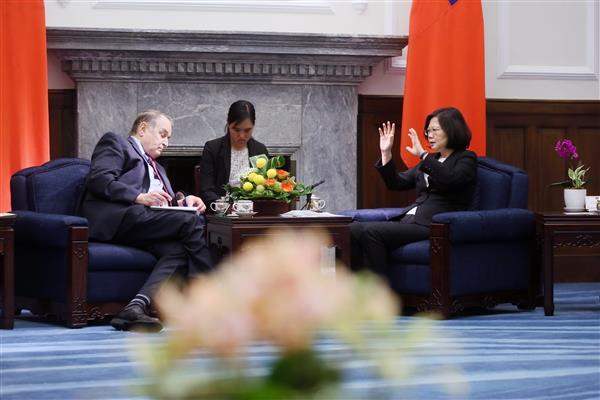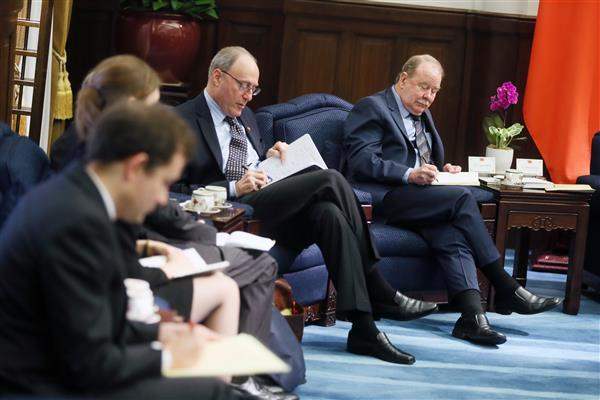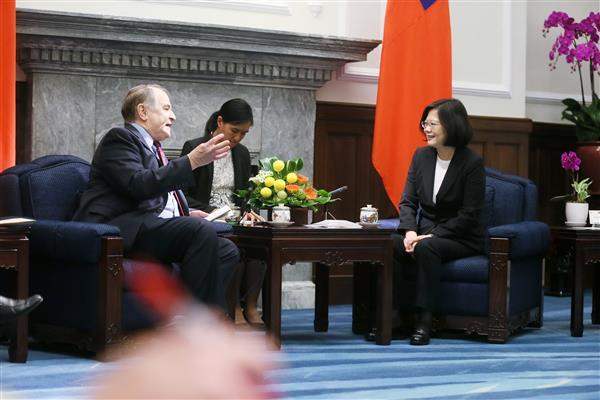News & activities
 News releases
News releases
On the morning of January 5, President Tsai Ing-wen met with a cross-strait affairs delegation from Harvard University's Fairbank Center for Chinese Studies. On behalf of the government and people of Taiwan, President Tsai warmly welcomed the visitors to Taiwan. She also reiterated that there has been no change in the government's good-faith commitment to maintaining cross-strait peace and stability, and said that in the conduct of cross-strait relations Taiwan will neither bow to pressure nor revert to the old path of confrontation.
In remarks, President Tsai noted that her visitors are all leading academics and specialists in the field of Asian and cross-strait affairs who have long been close observers of the trilateral relationship between Taiwan, the United States, and mainland China. They have extensive experience in visiting, observing, and working for extended periods of time on both sides of the Taiwan Strait as well as the United States, and are deeply interested in recent developments in cross-strait relations. Noting that in November of last year the Fairbank Center held conferences focusing on the political situation in Taiwan, cross-strait relations, the Asian economy, and Taiwan-US relations, President Tsai said she was confident that the valuable opinions expressed at those events will serve as useful reference for Taiwan going forward.
The president pointed out that since she took office on May 20 last year Taiwan has strived to maintain peaceful and stable cross-strait relations, and has sent out signals of goodwill to the other side in hopes that positive bilateral interactions might gradually mitigate confrontation and divisiveness. However, some things have happened over these past few months that give virtually everyone in Taiwan the feeling that the authorities in Beijing are returning to the old path. Taiwan's commitment remains unchanged, and its goodwill remains unchanged, reiterated the president, but we will neither bow to pressure nor revert to the old path of confrontation.
Turning to the subject of Taiwan-US relations, President Tsai stressed that the US is Taiwan's most important security and economic partner. We will continue to maintain close and friendly relations, and believe that the US government and Congress will continue to abide by its security commitments to Taiwan as set forth in the Taiwan Relations Act and the Six Assurances. Taiwan will also faithfully fulfill the roles of a "staunch guardian of peace" and a "proactive communicator for peace," and will work together with the US and other countries in the region to promote regional peace, stability, and prosperity.
Included in the delegation were Steven Goldstein (Director of the Taiwan Studies Workshop, Fairbank Center for Chinese Studies), Joseph Fewsmith (Professor of International Relations and Political Science at Boston University), Robert Ross (Professor of Political Science at Boston College), Alan Romberg (Director of the East Asia program at the Stimson Center), Alanna Krolikowski (visiting scholar from Göttingen University in Germany), and Daniel Koss (assistant research fellow at the Institute of Political Science at Academia Sinica).











